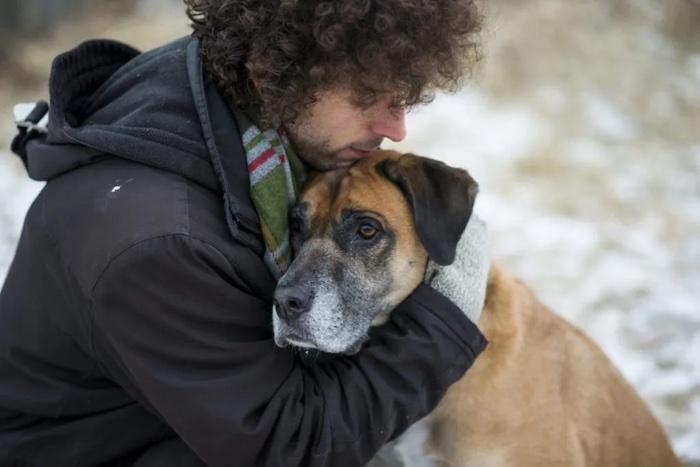
Monica Tarantino, DVM, MBA, is the cofounder of the Senior and Geriatric Dog Society (nicknamed SAGDS) which trains veterinary professionals and hospitals to enhance their senior dog care and produce better outcomes for geriatric patients. She was also previously the chief of staff for the Veterinary Medical Center of Fort Mill in South Carolina. Tarantino sat down with dvm360 in an interview during the Fetch dvm360 conference in Nashville, Tennessee. Additionally during the conference, Tarantino gave several lectures focusing on veterinary geriatric medicine, as well as, a joint lecture on advice for new veterinarians coming into the profession.
During this exclusive interview, Tarantino shared her insights on canine cognitive dysfunction, client communication and resources, and more. Learn more about Dr Tarantino in this Q&A style interview.
Can you tell us a bit about the Senior and Geriatric Dog Society?

I’ve been a general practitioner for about 10 years and I cofounded the Senior and Geriatric Dog Society. We call it SAGDS for short. We like that [abbreviation] because it reminds us of saggy old dogs and that makes us laugh. I founded it alongside Lauren Adelman, DVM, DACVIM (SAIM), and Lisa Lippman, DVM, and together, the 3 of us, we really wanted to figure out if there was a way to target this demographic of dogs, who we think of as the “underdog” of veterinary medicine. They have a lot more illness, they have comorbidities, they have chronic pain, they have quality of life issues. And we wanted to see if there was a way for us to start encouraging a more direct way to actually help this demographic of patients.
Can you share some tips on identifying canine cognitive dysfunction?
Canine cognitive dysfunction is a really difficult disease, because it’s a disease of quality of life. And it’s not just quality of life for the pet, but also for the pet parents. Oftentimes, if you’re thinking about those pet parents that come into the exam room to see you, many of them are exasperated, they’re frustrated, they’re feeling guilty because they’re getting frustrated with their pets at home because they’re not acting like they normally do. So, it can be a really challenging disease.
But truly, when you’re diagnosing it, one of the most important things to think about and what to look for is changes in behavior. Oftentimes they are very subtle, and many times pet parents have chalked that up to things like senility or “they’re just getting older.” And when you start hearing that stuff in the exam rooms, it’s time to look a little bit closer at what they are seeing at home and what they mean by those terms.
What are your best practices for client communication about making adjustments at home with senior pets?
A lot of pet parents, because our dogs tend to look good for so long, you never actually recognize that they’re a senior dog. And many pet parents are in a little bit of denial when it comes recognizing that they’re pet is a senior. So, I think one of the most important things to do as far as that goes, is to start having a conversation earlier with parents about the fact that their dog is a senior now. And this is a time period where they’re going to be more prone to disease as they get older. So now this can be on [clients’] radar earlier and you can start talking to them about things to look out for as [pets] get older. It really does take a lot of teamwork, with a veterinary team and a senior dog pet parent to help manage that pet as they get older and make sure they’ve got a good quality of life as they age.
What resources are available to help support clients with anticipatory grief and caretaker exhaustion?
Both anticipatory grief and caretaker exhaustion truly impact pet parents of a senior pet and there are some resources that are online. For example, at petlosscommunity.com we have anticipatory grief handouts, free resources everyone can go download, and we even have anticipatory grief support groups for pet parents that are just struggling with that intense feeling of fear of losing their pet, even when they still have their pet right now in their life. So that is a really great resource to go to.
Any other thoughts on geriatric medicine in general?
I think one of the best ways that you can help a senior and geriatric dog is really dialing in more on chronic pain management. In fact, I really think it’s valuable a chronic pain management plan that pet parents are in on and that they know is going to continue to adjust as that pet gets older and require constant reassessment. I think that is one of the best ways, in practice, that you can be helping this older demographic of dogs.
What is your biggest piece of advice for a new veterinary student graduating this year?
I think my biggest piece of advice for a veterinary student who has just graduated is to not be scared to say “I don’t know” when it comes to cases or walking into the exam rooms. When I was a brand-new vet, because I was so hypersensitive about being brand new, I never wanted to make it seem like I didn’t know what I was talking about. But there are still brilliant vets that have been out [of school] for a long time that still don’t know when it comes to a case. So, really being able to say “I don’t know, but I’m going to try and find out” can be really valuable in the exam room.
Complete Article ↪HERE↩!
